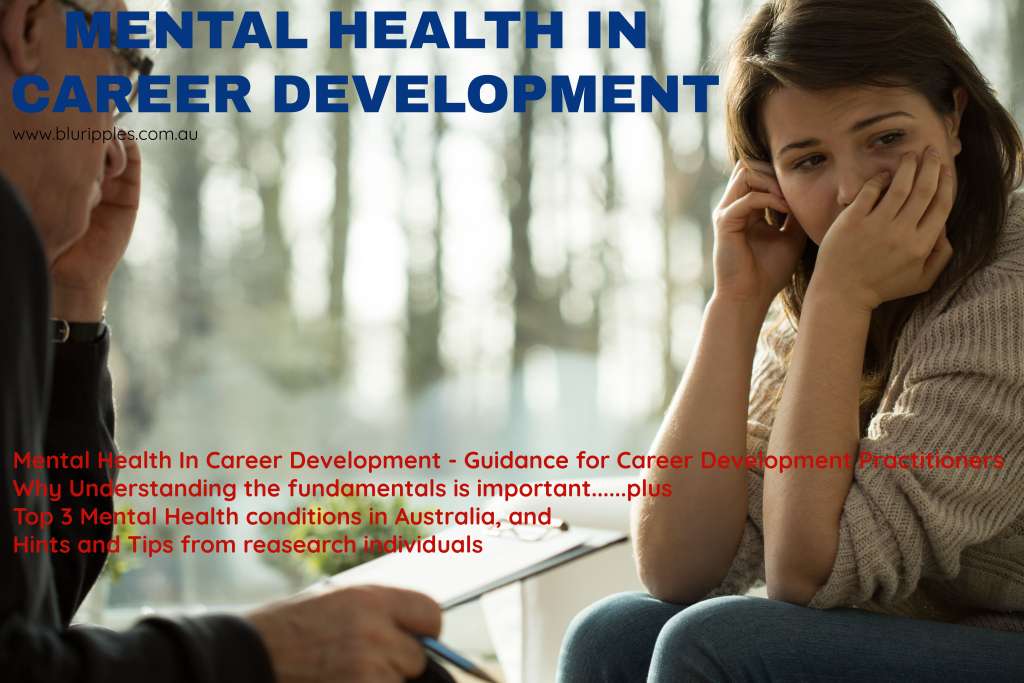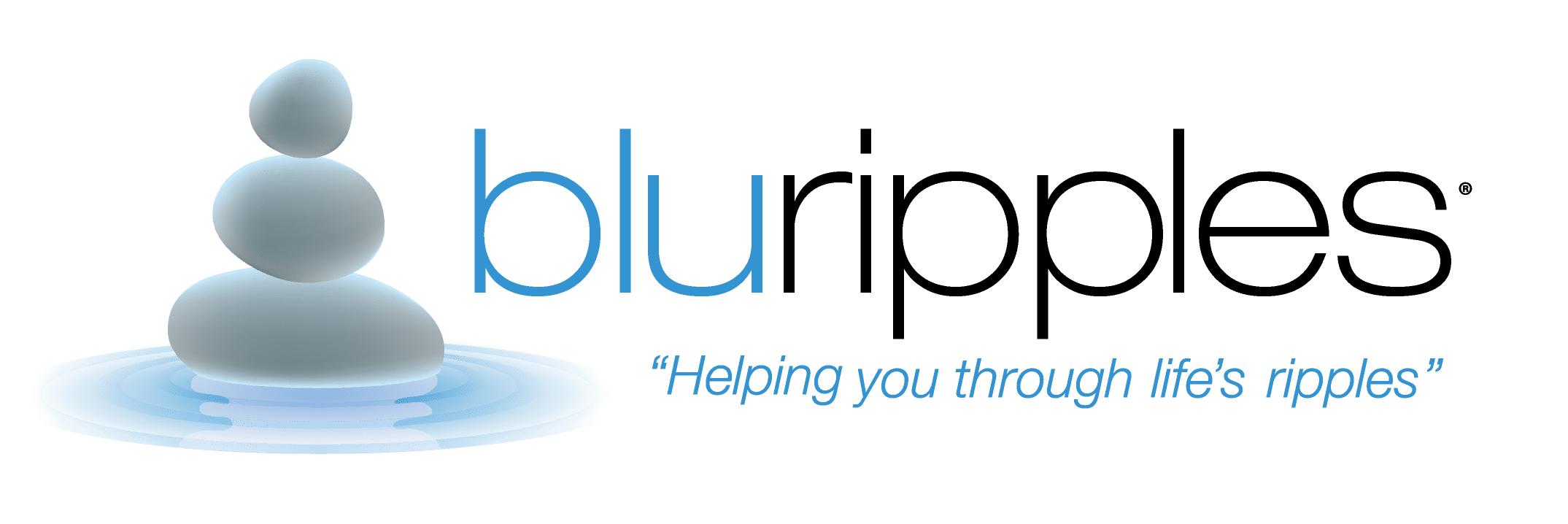
In early 2017, one proposed as a then sitting member of the CDAA NSW Committee a webinar entitled Mental Health in Career Development.
Drawing on ones’ experiences and qualifications as a nationally registered Counsellor, as well as conducting extensive research with individuals with diagnosed mental health conditions in ones’ local region, together with research from various journals and articles one developed a comprehensive and meaningful webinar outlining: –
- Mental Health in the Career Development Industry – A need to understand the fundamentals
- What is a Mental Health Disorder or Illness
- Top 3 Mental Health Conditions in Australia including definitions, statistics, risk factors, signs and symptoms
- Role of Stress
- Our role as Career Development Practitioners – Best Practice
- Impact of Mental Health Conditions on an individuals’ career – what to look out for
- Tips and strategies from individuals with Mental Health Conditions
- Mental Health Signs and symptoms forms for adults and minors
- Resources and Referral Information
As a Career Development Practitioner, it is not our job to diagnose a client with a mental health condition, that is the role of the clients’ doctor, specialists and/or mental health practitioners. However, as Career Development Practitioners we do have a duty of care to all clients to ensure that no additional harm is done to our clients whilst they are utilising our services; and to ensure that we act ethically with respect to the administration of psychometric instrumentation.
Thus, it is ones’ opinion that it is important for all individuals in the Career Development industry to understand the fundamentals of Mental Health in order to effectively facilitate our clients, identify signs and symptoms of Mental Health Conditions, to know when and how to refer clients to ensure due diligence is carried out and that career strategies engaged are effective, meaningful and ethical in accordance with the needs of the client, industry guidelines and regulations.
In fact, one would go so far as to state that tertiary providers should incorporate fundamental Mental Health modules into their Career Development courses to ensure that all graduating practitioners have a basic understanding prior to entering the workforce or commencing their own private practice.
Well Katherine, that’s a very interesting perspective but it doesn’t affect me or my organisation!
Well, one is here to challenge you and to say Think Again!
The Medical Journal of Australia (Aug 09), Mindframes and the Black Dog Institute identifies the Top 3 Mental Health Conditions in Australia to be:-
- Anxiety
- Depression;
- Substance Abuse
Digging a little deeper on average
- Anxiety affects 1 in 4 individuals – 1 in 3 women and 1 in 5 men
- Depression affects 4% of the Australian population in any 12-month period, that is 4% of the population will experience a major depressive episode; with the statistics indicating 1 in 5 women and 1 in 8 men will experience depression at some point in their life; and
- 1% of the Australian population will experience Substance Abuse; research states that the median onset age is 18 years with half experiencing substance abuse issues before the age of 18.
Now put those statistics in to a practical application; let’s just look at Anxiety for now. Currently, the Australian population is 25 million and therefore utilising the above statistics 6 million 250 thousand individuals are affected by Anxiety in Australia; now take that down to a workplace level if you have 100 employees in your company, statistically speaking 25 individuals will have anxiety and breaking that down once more to a client basis if you have 20 clients per week 5 of those clients will have Anxiety.
In short, this article is about raising awareness with respect to Career Development Practitioners ethics, services, products and standards to ensure that we (as an industry) are doing everything in our power to ethically and professionally facilitate clients with diverse needs to identify, explore and manage their career over the course of their life cycle.
Prior to closing this article, one wishes to reiterate that each and every individual is unique with their own life experiences and triggers; thus, as professionals it is ones’ perception that learning is best done by directly communicating and interacting with individuals with Mental Health conditions and asking them directly what it is they need from us, as Career Development Practitioners and/or Employers, to best assist them in achieving their career goals and optimal workplace performance.
Outlined below is a few responses from individuals with diagnosed Mental Health conditions: –
How To Help – Hints and Tips from individuals with diagnosed Mental Health conditions (Lived With Experiences).
- Create a safe and comfortable work environment for me
- Treat me with unconditional positive regard; do not judge, discriminate or ridicule me
- Help me set achievable mini goals rather than big picture, medium to long-term goals
- Provide me with fulfilling and meaningful work; mundane roles and responsibilities add to my Depression
- Empower me
- Support and guidance is highly valued by DO NOT mollycoddle me if I need or want help
- Do not team me up with Alpha personality types or put me under their direct supervision
- Provide a supervisor or mentor that shows unconditional positive regard and professionalism; preferably the same sex, one that I can talk to and be comfortable with
- Do not put me in high conflict situation or environments
- Offer for me to bring a support person during period of upheaval, conflict or where judgement is likely to occur e.g. Performance Reviews and Interviews
- When providing me with training please keep me in small training groups with no more than 10 participants
- Introduce change in slow measured steps as change can be a very scary process for me and trigger high levels of Anxiety
- Deep breathing, grounding and relaxation exercises help me reduce the severity of my Anxiety
- Listening to music helps me defuse, destress and stop my obsessive thoughts and actions; let me listen to music if I need to during the day
- Provide a break away area
- Anxiety exhausts me, I need a 15-minute power nap during the day
Summary Of Research Findings For Career Development Practitioners
Upon reading the above information, clear patterns emerge with respect to environmental, behavioural, communication and interpersonal requirements. That is, it is highly important to: –
- Create a safe and comfortable work environment
- Treat individuals with professionalism and unconditional positive regard
- Empower individuals by providing meaningful work and exercises
- Collaboratively establish and monitor mini-goals and KPI’s rather than medium-long term ones
- Choose a best fit supervisor, mentor or colleague to work with the individual based on their needs; preferably someone who is the same sex and not an Alpha type personality
- Provide support and guidance; when needed or wanted but in a professional manner
- Understand the signs and symptoms of mental health conditions
- Discuss the individuals coping strategies and provide them with the necessary resources such as break away rooms or areas if and when needed by the individual
- Empower individuals to use their preferred coping strategies such as deep breathing, visualisation and/or listening to music to defuse or destress from a trigger
In closing, it is ones hope that this brief article provided you with some food for thought and insights to encourage you to undertake further training and development i.e. Mental Health First Aid course, source and utilise resources and referral information including Mental Health Signs and Symptom survey forms particularly prior to administering any psychometric instrumentation, to look at your own competencies and systems to identify what you are doing well and what could be improved in terms of collaboratively facilitating individuals with Mental Health conditions to establish and achieve their individual career objectives.

ABOUT THE AUTHOR (2018 Version)
Katherine is the Founder of Blu Ripples a specialist Career Counselling and Consulting practice located in Port Stephens NSW. Katherine is a nationally registered Career Development Specialist and Counsellor; is a Professional Member of the Career Development Association of Australia, Member of the Australian Counselling Association. Former CDAA NSW Committee Member; Graduate of RMIT and AIPC. Katherine has worked in private practice since 2003 and prior to that worked in the corporate sector for a period of 12 years predominantly in Human Resources and Administration.
© 2018 - Katherine Foster T/as Blu Ripples
Updated 16 Feb 2025; Originally Posted 17 July 2018
Katherine's Photograph: 2023


